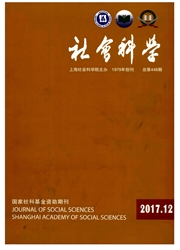

 中文摘要:
中文摘要:
"十一五"期间,我国低碳发展取得重大成绩,但强有力的行政干预措施遭遇了"政策供给高成本"和"生活模式高碳化"的激励效率困境,低碳规制效率呈现出"中央-地方-公众"逐层递减的现象。政府作为低碳治理的核心行动者,其低碳理念、行动偏好和行动意愿是导致低碳规制产生效率损失的内生性因素。政府低碳治理的问卷分析表明,目前我国中央和地方政府已经具有了一定的低碳意识,但在低碳理念、治理动力和规制偏好上存在博弈性偏差。
 英文摘要:
英文摘要:
During the eleventh five plan, China's energy conservation and emission reduction have achieved significant performance under the powerful administrative intervention from Chinese governments; However, the governmental regulations also confronted with the efficiency dilemmas with high regulation costs and high energy - consumption in public life - style. So the efficiency of low - carbon governance has been dropped gradually from central government and local government to the public hierarchy in China. As the core actors, the governments play a positive role in Chinese low -carbon development. Their perceptions, governance perferance and action willingness is the endogenous factors which may result in the efficiency lost in the low - carbon regulations. Grounded on Cognition - attitude - behaviore model, the survey on governmental low- carbon governance indicated that the policymakers in China have aknowledged the importance of climate change mitigation, but still lake of the systematic perception of energy - saving mechnism and incentive policy system for low - carbon development. Furthermore, the gov- ernmental regulations in low - carbon development focused on the economic effect but not the transform of energy consuption mode; focused on the administrative indexes of emission reduction but not the considation of social cost.
 同期刊论文项目
同期刊论文项目
 同项目期刊论文
同项目期刊论文
 期刊信息
期刊信息
